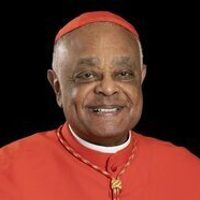The month of January is packed with specific annual themes and programs observed here in the USA. As we exit the Christmas celebrations, each year we are urged to consider and to champion the sacred innate dignity of all human life, the contributions of Dr. Martin Luther King Jr. to human freedom and justice, the importance of our Catholic schools, and many other topics.
We then bring this first month of the year to a conclusion with the call for Christian unity. The final days of January invite all of us to pray and to work for unity among the Christian churches, something which Christ Himself eagerly desires. In 1908 this Week of Prayer for Christian Unity was begun as an annual endeavor – a truly worldwide ecumenical joint effort.
In our highly polarized world, the prayerful pursuit of ecclesial Christian unity would be a welcome endeavor as a sign that even our theological, organizational and liturgical differences are not insurmountable barriers to conversation, to dialogue, and to mutual respect. What a wonderful witness the Christian churches in the world might provide if this particular week could serve as an impetus for increased social harmony.
The Christian churches have significant doctrinal differences to be sure, but there are also the histories of conflict, persecution, defamation, and vilification that stand in the way of true unity. So we must begin this week on our knees asking the Holy Spirit to bridge the chasms that continue to separate us. That is why the formal name for this week is: The Week of Prayer for Christian Unity. In truth, this observance is more than the customary seven-day week, it is an octave week – eight days representing a longing for the fulfillment that octaves indicate. A liturgical octave is a representation of the perfection of time.
During this annual commemoration, there are many occasions for the leadership of Christian churches to encounter one another with gestures and expressions of friendship and mutual respect. Momentarily, we set aside the still unresolved matters that separate the churches and for a few days we concentrate on those things that we share in common, especially our human dignity as God’s children.
Would that these encounters might serve as a pattern of how other societal differences could likewise be addressed – not denying their significance but focusing on areas where we can highlight our common values. Some people might suggest that we must solve any and all such ecclesial differences before we extend the hands of friendship. There are still a few people who even question the worth of ecumenical dialogue. Such hesitancy is also found among those who point out the chasms that separate our political positions, cultural differences, and national conflicts.
Those who work for any form of reconciliation could never even begin the process if hearts are so hardened that they cannot admit of any common threads that might be used to link people together in spite of the real differences that still distinguish us. The scriptural theme for this year’s Week of Prayer for Christian Unity is: “You shall love the Lord your God . . . and your neighbor as yourself” (Luke 10:27). It is a bond of wisdom that should move every Christian heart.
(Cardinal Wilton Gregory, the archbishop of Washington, writes his “What I Have Seen and Heard” column for the Catholic Standard and Spanish-language El Pregonero newspapers and websites of The Roman Catholic Archdiocese of Washington.)











